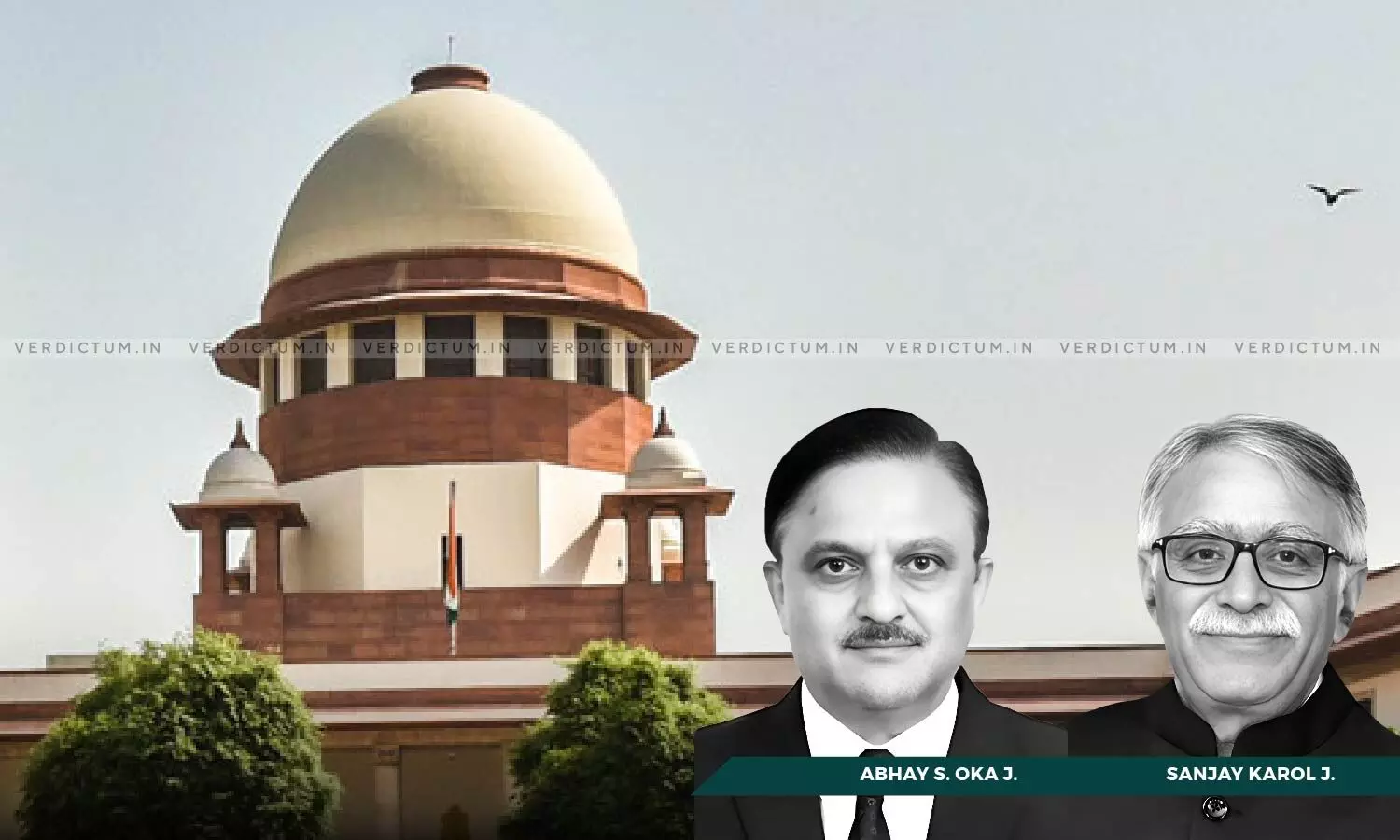
S. 19(b) SRA| Subsequent Purchasers Can Be Directed To Execute Sale Deed Along With Original Vendor; No Need To Pray For Cancellation Of Subsequent Sale Deeds: SC
 |
|The Supreme Court observed that in a case where Section 19(b) of the Specific Relief Act, 1963 (SRA) is applicable, under the decree of specific performance, the subsequent purchasers can be directed to execute the sale deed along with the original vendor.
The Court noted that, in such cases, there is no necessity to pray for the cancellation of the subsequent sale deeds.
The two-Judge Bench of Justice Abhay S. Oka and Justice Sanjay Karol enunciated, "In view of clause (b) of Section 19, the defendants who are claiming under the sale deeds executed after the execution of the suit agreement can be subjected to a decree of specific performance as the suit agreement can be enforced specifically against such defendants unless they are bona-fide purchasers without the notice of the original contract. When, in a given case, the defendants, who are subsequent purchasers, fail to prove that they entered into the sale deed in good faith and without notice of the suit agreement, in view of Section 19(b), a decree for specific performance can be passed against such defendants. Therefore, in such a case where Section 19(b) is applicable, under the decree of specific performance, the subsequent purchasers can be directed to execute the sale deed along with the original vendor. There is no necessity to pray for the cancellation of the subsequent sale deeds."
The Bench noted that the suit was filed within limitation and the defendants did not raise a plea of delay and laches.
AOR Vanshdeep Dalmia represented the appellants while AORs Sumit Kumar and Jatinder Kumar Bhatia represented the respondents.
In this case, the first defendant executed a registered agreement for sale in 1981 by which he agreed to sell his Bhumidhari land in favour of the plaintiffs for a consideration of Rs. 20,300/-. According to the plaintiffs' case, requests were made orally and by sending notices to the first defendant to execute the sale deed. It was pleaded in the plaint that the first defendant refused to accept notices. The prayer in the suit was for specific performance of the agreement with a direction to the defendants to hand over possession of the property to the plaintiffs and to execute a sale deed in respect of the property in their favour.
The defendants, including the legal representative of the original first defendant, filed separate written statements. It was pleaded that the agreement was a forged document which was never to be acted upon and that the plaintiffs never paid any money to the first defendant. The Trial Court held that the execution of the suit agreement was proved and the Additional District Judge confirmed its decision. A second appeal was preferred by the respondents but the same was also dismissed. Hence, the matter was before the Supreme Court.
The Apex Court in view of the above facts remarked, “… in the facts of the case, it is very difficult to accept the contention that the suit agreement was got executed from the first defendant with the object to deter him from selling the suit property to meet the demands of his bad lifestyle. Hence, the suit agreement cannot be held as bogus or sham. … Therefore, in view of explanation 1 to Section 3 of the TP Act, the second to fourth defendants shall be deemed to have knowledge of the suit agreement, which was duly registered. It cannot be said that the second to fourth defendants had no knowledge of the suit agreement in view of the constructive notice. It is not their case that they took a search in the office of the Sub-Registrar before getting the sale deeds in their favour. Hence, it cannot be said that they paid money in good faith to the first Defendant.”
The Court said that the second to fourth defendants can never be held to be bona-fide purchasers who have paid consideration in good faith without the notice of the suit agreement. It added that a decree enjoining the defendants to obtain permission to sell the suit property can be passed as it is their implied obligation to do so and a decree for the specific performance can be passed contingent upon the grant of the permission.
“There are concurrent findings of the three Courts on the issue of the readiness and willingness shown by the first plaintiff. There is no reason to disturb the said findings. Now, the question is, what is the effect of the failure of the second plaintiff to support the first plaintiff and his conduct of supporting the defendants? In the facts of the case, the answer lies in the submissions made by the second to fourth defendants before the High Court”, it noted.
The Court observed that as the second plaintiff was not interested in getting the specific performance, the decree ought to have been restricted to the undivided one-half share in the suit property in favour of only the first plaintiff.
Accordingly, the Supreme Court partly allowed the appeal and modified the impugned decree.
Cause Title- Maharaj Singh & Ors. v. Karan Singh (Dead) Thr. LRs. & Ors. (Neutral Citation: 2024 INSC 491)